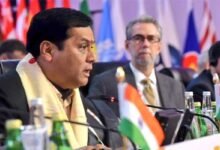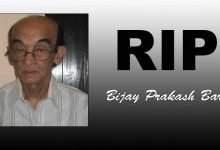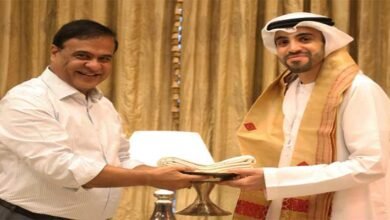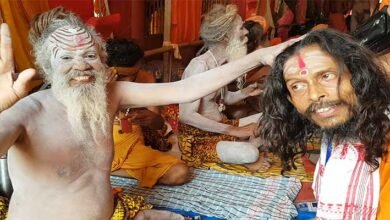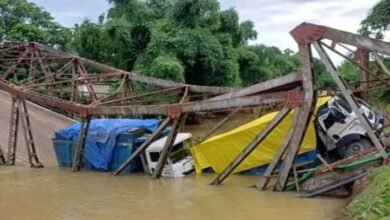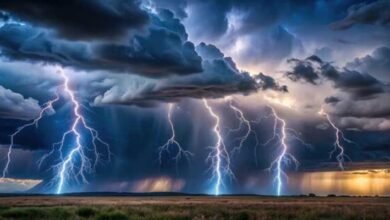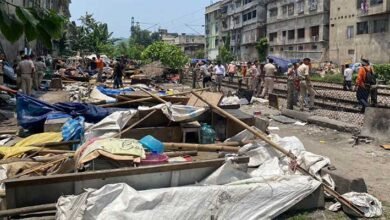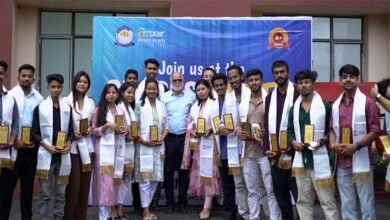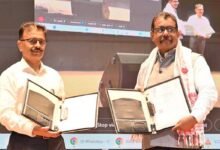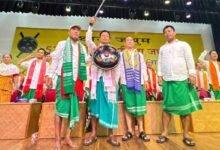Assam: AWJF organises a training session on ‘Reporting Climate Change and Gender’ at Gauhati University
It has been noticed in recent years that climate change has created havoc in different parts of the country................

GUWAHATI- The Assam Women Journalists’ Forum (AWJF) collaborated with Gauhati University’s Department of Communication and Journalism to hold a training session on ‘Reporting Climate Change and Gender’ on September 19.
It has been noticed in recent years that climate change has created havoc in different parts of the country. North East and Assam, in particular, is vulnerable to the devastation caused by changing climate and weather conditions. Floods and earthquakes are frequent and extensively impact human lives and livelihood. Reporting climate change and gender needs certain skills and knowledge which the resource persons, all members of AWJF, highlighted during the session.
Dr. Bharati Bharali, Assistant Professor, Department of Communication and Journalism, welcomed the resource persons and lauded the initiative by AWJF; she also drew attention to the recent programs by the department.
Arunachal Pradesh: China builds new heliport near LAC
AWJF president and PTI Bureau Chief Durba Ghosh began by giving an introductory note on the newly-formed AWJF and pointed out that after so many years; “we still don’t have a woman editor in mainstream media in Assam”. “We want that to change, hopefully, in the next 10 years”, she added.
Jayantakrishna Sarmah, Dean, Faculty of Arts and Dhrubajyoti Saharia, Secretary, University Classes, also attended the program, and provided their valuable inputs.
The resource persons talked about local communities who are bearing the brunt of climate change and also how they are adapting to it.
Assam: Examinee claims woman constable searched her private parts before entering Exam hall
Senior journalists Mubina Akhtar and Ratna Bharali highlighted some of their landmark stories to provide a context to the way climate change has effected livelihood and living in this part of the world.
Mubina Akhtar threw light on how climate change poses a threat to Assam’s heritage thread, Muga and the positive impact of her reportage on the issue.
Ratna Bharali drew on recent examples of displacement and labour to help understand how climate change is impacting livelihood in rural areas. She emphasized that women do not often have access to local resources; however, women also have better adaptation strategies.
Tripura: Minor girl returning from school abducted, raped
Samim Sultana, vice president, AWJF, spoke about pay parity and the fact that women are still not getting ‘equal pay for equal work’; she also spoke about making gender-sensitive reporting a priority in newsrooms.
Angana Chakraborty, independent journalist, spoke about the ‘inequality of heat’: how climate change disproportionately affects women from the most vulnerable communities and how they respond to it; she used two articles to highlight the different ways of covering the gendered impact of climate change — in a rural and in an urban setting.
Chandrani Sinha, another independent journalist, spoke about taking local stories to a global platform and about climate preparedness and resilience; she also highlighted how political instability can impact climate financing—citing the case of Bangladesh. The session is a step by AWJF towards bridging the gap between the classroom and the news room so that students are better skilled to deal effectively with challenges of modern journalism.
Meghalaya: Meitei Group’s organise Sit-In Protest In Shillong
The resource persons of the training session included award-winning journalists who have reported extensively over the years on North East’s biodiversity, environment, wildlife, climate change and gender issues.
They are PTI’s Bureau Chief Durba Ghosh, Dainik Agradoot’s News Editor Samim Sultana Ahmed and Independent Journalists Mubina Akhtar, Ratna Bharali Talukdar, Chandrani Singha and Angana Chakrabarti.
Assam Women Journalists’ Forum (AWJF) is a network of women media persons working in the state to provide a platform for their professional growth as well as mentor and skill new entrants to the media industry.
Among its many objectives, the Forum aims to coordinate with different Mass Communication Departments and Institutes to bridge the gap between academia and industry along with facilitating skill development of journalism students.

